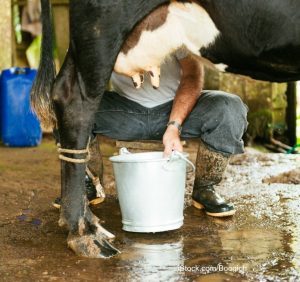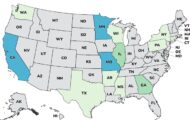June is Dairy Month so the U.S. Food and Drug Administration (FDA) is reminding consumers about the importance of pasteurization and debunking raw milk myths. Raw milk is milk from cows, sheep or goats that has not been pasteurized or heated for a short period of time to kill harmful bacteria such as E. coli, Salmonella, Campylobacter and Listeria.
 With the exception of certain cheeses, unpasteurized, or raw milk products intended for human consumption have been prohibited in interstate commerce since 1987. Some states allow the sale of raw milk, others allow only owners of the animals producing milk the option to drink it raw. Raw milk enthusiasts who live in states where the sale of raw milk is banned will sometimes drive to a neighboring state to purchase raw milk or form a herd share program so they can technically become owners of milk-producing animals.
With the exception of certain cheeses, unpasteurized, or raw milk products intended for human consumption have been prohibited in interstate commerce since 1987. Some states allow the sale of raw milk, others allow only owners of the animals producing milk the option to drink it raw. Raw milk enthusiasts who live in states where the sale of raw milk is banned will sometimes drive to a neighboring state to purchase raw milk or form a herd share program so they can technically become owners of milk-producing animals.
Raw milk enthusiasts say the taste and nutritional value of raw milk is superior to pasteurized milk. Studies show pasteurization does not change the nutritional value of milk. Some claim that pasteurization causes lactose intolerance. It doesn’t. Others say raw milk can cure lactose intolerance and allergies and somehow kill dangerous bacteria on its own. It can’t.
Even more troubling is that while making these unsupported claims, many raw milk enthusiasts deny the risks associated with drinking it. Between 1993 and 2006, at least 1500 people became sick from drinking raw milk, according to the Centers for Disease Control and Prevention (CDC). Many of them were children and teenagers who battled serious illness and endured lengthy hospital stays.
Because of the serious health risk raw milk poses to children and young people, the American Academy of Pediatrics wants it banned. The association is among a host of scientific and medical associations and government agencies that endorse the consumption of only pasteurized milk and milk products for pregnant women, infants, and children including: the FDA, the CDC, the American Medical Association, the American Veterinary Medical Association, the International Association for Food Protection, the National Environmental Health Association, and the World Health Association in endorsing
Consumers looking to boost their immune systems with “good bacteria” have safe options in pasteurized probiotic yogurt and kefir.




